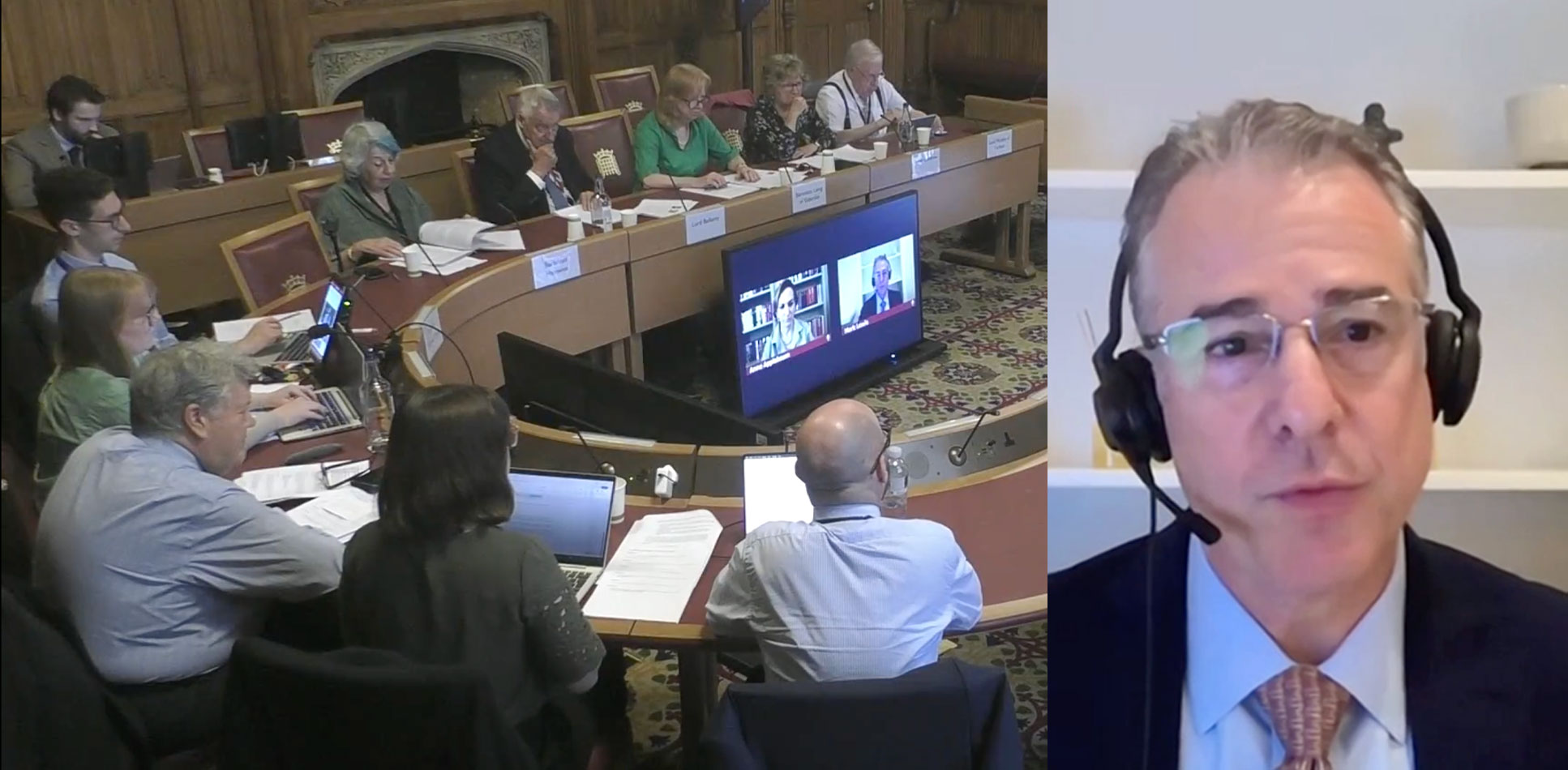

WJP Chief of Public Sector Partnerships Mark Lewis represented the organization at the oral evidence session, which focused on the global state of the rule of law and how the UK compares internationally. He joined Pulitzer Prize-winning historian Anne Applebaum in offering insights to the House of Lords Constitution Committee.
Responding to a central question on whether a global understanding of the rule of law exists, Mr. Lewis emphasized that while legal traditions differ, there is a broad international consensus on key tenets. He explained WJP’s definition of the rule of law as a durable system of laws, institutions, norms, and community commitment grounded in four universal principles: accountability, just law, open government, and accessible and impartial justice. This substantive approach aligns with definitions used by the United Nations and the Venice Commission.
Mrs. Applebaum echoed this view, noting that while distinct from democracy, the rule of law is foundational to democratic systems. She warned that in its absence, institutions become vulnerable to manipulation and democratic processes can not function effectively.
Mr. Lewis also presented findings from the 2024 WJP Rule of Law Index®, which highlights the continued global “rule of law recession”, a steady decline in rule of law adherence. While the UK continues to perform well with an overall ranking of 15th globally, the data points to possible challenges in civil and criminal justice. These include the timeliness of civil proceedings, effectiveness of the correctional system, and perceptions of fairness.
In response to questions from Committee members, Mr. Lewis explained that the rationale behind WJP’s work is to make the rule of law measurable and actionable. He noted that WJP’s data-driven tools are increasingly used by governments, civil society, and other organizations as diagnostic resources to identify gaps, prioritize reforms, and strengthen accountability.
The hearing also addressed global trends in shrinking civic space and rising authoritarianism. Mr. Lewis noted that WJP’s data captures this deterioration through indicators such as limits on freedom of expression, assembly, and judicial independence. He also highlighted the impact of resource constraints on justice systems, noting that the resulting delays and barriers to access can erode public trust and the perceived legitimacy of the rule of law.
WJP is deeply grateful to the House of Lords Constitution Committee for the opportunity to contribute to this important inquiry. This engagement reflects WJP’s ongoing commitment to informing public debate and policymaking through independent, people-centered data.
Updated findings, including new UK data, will be published in the 2025 WJP Rule of Law Index® this autumn.






